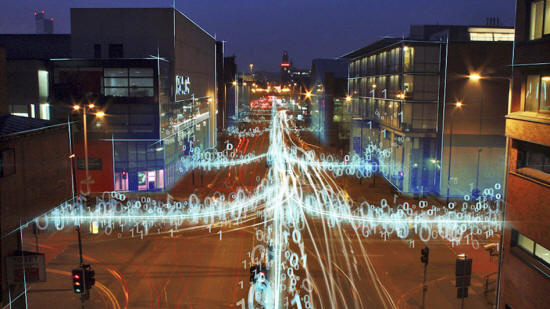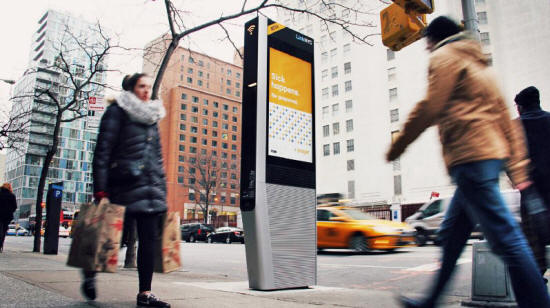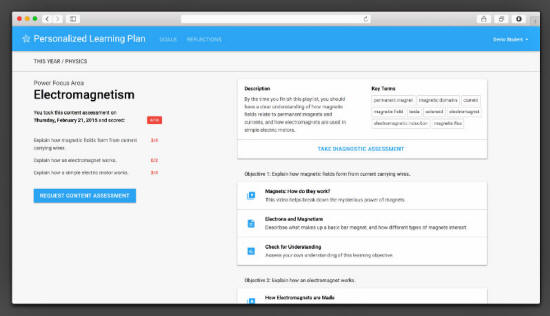|

by Blake Hudelson
April 02,
2017
from
Medium Website

From social networks that connect us with friends across the globe,
to smartphones that can provide anything with a few taps, many of
Silicon Valley's top companies have created a lot of change over the
past decade.
Some of this change has
been groundbreaking, while some has been more invisible.
The reality is that many of these groundbreaking companies - Google,
Facebook, Amazon - have found
their success from pretty unexciting things like clicks, likes, and
shares.
Recognizing that these companies can provide much more value to the
world than well-placed ads, some are taking their money and using it
to explore more critical issues involving,
-
cities
-
energy
-
space
-
education
The Importance
of Cities
In an age of hyper-innovation, our cities have been particularly
slow to keep up with the rapid technological growth we've
experienced in the past few decades.
Currently, 2 out of 3 people live in cities and billions of people
aren't able to reach their potential because their cities are not
giving them the opportunities necessary for success.
Whether it's prohibitively high housing prices, traffic-clogged
streets, or polluted air and water, the way to create exponential
positive change is to create better cities.
As disruptive technologies start to move beyond our pockets and into
the larger infrastructures of our cities, we're starting to see
ideas that could have major impacts on how we live and interact with
one another.
Initiatives like Google's
Sidewalk Labs and the impending
rush of self-driving cars are seeking to update century-old
"operating systems" that our cities run on.
After a few years working under the radar, Google's smart cities
research unit, Sidewalk Labs, is ramping up to tackle some of
our most significant urban problems.
Sidewalk Labs has
noticed something critical: many of the people who are doing the
planning of our cities aren't very tech savvy, and the technologists
building the software that is affecting our built environment aren't
very knowledgeable about cities.
That's where Sidewalk Labs comes in.
Over the next few years,
Sidewalk Labs will enable new forms of civic innovation while
bridging the gap between technology innovation and traditional urban
planning.

Image by Sidewalk Labs
The "smart city" is an idea that has been around for a while but is
still a relatively ambiguous term.
To an organization like
Sidewalk Labs, the smart city would be the collective effect
of many technologies including the,
As these technologies
progress in tandem, the effects will be enormous - like the sort
of change cities experienced with the advent of the automobile or
the electric grid.
The one public project that Sidewalk Labs has launched so far
is
LinkNYC, which is a network of
kiosks that provide 'free'
Wi-Fi and gathers actionable data on the surrounding
environment such as,
-
air quality
-
traffic patterns
-
noise levels
-
pedestrian
activity
The NYC Planning
Department is able to connect to the kiosks and use this data to
make more informed infrastructure and planning decisions.
It's no secret that Google has a huge amount to gain by helping
cities become "smarter".
As it starts to roll out
its own self-driving car program, it will already have a huge amount
of data about cities that can be used to inform traffic models and
look for new business opportunities.

LinkNYC by Sidewalk Labs
Rethinking K-12
Education
Citing an ongoing frustration with the lack of innovation in our
public education system, Mark Zuckerberg and Priscilla
Chan have decided to use their influence (and bank account) to
build a new type of school.
"The
Primary School" in East Palo Alto seeks to help lower
income kids improve their learning experience and get more attention
than they would in their financially-strapped neighborhood schools.
In addition to its
experience-based curriculum and personalized learning approach
through software, the school will offer free healthcare for all
students from birth until graduation.

The Primary School
The Zuckerberg's earnest effort to create a better educational model
began a couple years ago when they started to use engineering
resources from Facebook to help a Bay Area school improve its
learning software.
Personalized Learning
Plan (PLP) software is still in its infancy, but it works by
giving students materials that pertain to their interests that they
can complete at their own pace.
In most public school classes, there is typically a third of the
class that are high performers and a third of the class that are low
performers.
The teacher is then
forced to teach in the middle, which benefits nobody. PLP technology
frees up classroom time for teachers to mentor students directly, as
well as allows students more time to collaborate with or teach each
other.
Facebook has said it isn't planning to get into the education
sector, but it might find it hard to stay away if other companies
don't step up to the plate.

Personalized Learning Plan Software
The Techie Space Race
Amazon has mastered the art of the sale and is now worth over $400
billion.
But Jeff Bezos
seems to have goals bigger than perfecting the checkout flow. His
space exploration company,
Blue Origin, is trying to be the
first company to provide affordable space travel to the general
population and compete with
SpaceX to help humans explore
beyond our little blue planet.
In the short time that Blue Origin and SpaceX have existed, they
have helped bring innovation back to the stagnant space industry.
Operating their companies
more like tech startups, they have created much needed competition
to the staid defense companies like Lockheed and Boeing, which have
controlled the aviation industry for decades.
In only a few years, Blue Origin and SpaceX have been able to create
reusable rockets, provide NASA with supplies at a fraction of the
cost of other companies, and start offering more affordable space
exploration options.

Blue Origin
Elon Musk continues to push
forward with his plan to put humans on Mars by 2026 and help
humanity become a multi-planetary species.
He's sunk billions into
creating SpaceX, with the eventual goal of creating a permanent
settlement on Mars.
Critics have asked why he doesn't focus his efforts on improving
life on Earth first, but his interests look much further into the
future than our lifetimes.
His ultimate intention is
to "back up the human race's hard drive" in case of some catastrophe
hitting Earth in the future.
Yes, it sounds crazy, but in an age of companies looking for quick
profits at the expense of our planet, it's refreshing that someone
is looking beyond the near term.
Even Stephen Hawking has talked about the importance of
humans leaving Earth:
"Although the chance
of a disaster to planet Earth in a given year may be quite low,
it adds up over time, and becomes a near certainty in the next
thousand or ten thousand years.
By that time we
should have spread out into space, and to other stars, so a
disaster on Earth would not mean the end of the human race."
Stephen
Hawking
The colonization of other
planets can be compared to the colonization of the US's western
states.
In the early 1800s, it
wasn't possible to rapidly move people or goods until the
Transcontinental Railroad came along to connect existing cities to
the frontier.
Similarly, SpaceX and
Blue Origin realize that frequent and dependable supply routes are
integral to any permanent settlement, so they must lay the initial
foundation for future space settlements.
There is definitely much to be gained from things like satellite
launching, asteroid mining, and space tourism, but I like to think
that companies like Blue Origin or SpaceX have more noble goals than
making a few more bucks.
Plus, profit with a
purpose is a bit sexier than revenue from clicks and likes...
|







